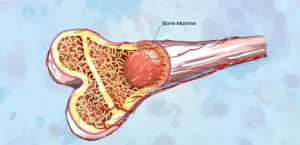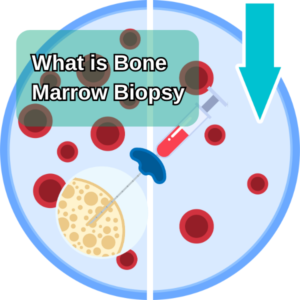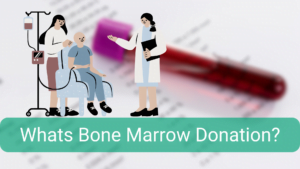+90 533 813 89 77
info@bookingforhealth.com

Things to know about Bone Marrow transplant
What is Bone Marrow Transplant?
Bone marrow transplantation, also known as hematopoietic stem cell transplantation (HSCT), is a medical procedure in which healthy stem cells replace damaged or diseased bone marrow. This procedure is utilized in the treatment of numerous severe health conditions. There are two primary types: autologous (using one’s own stem cells) and allogeneic (utilizing healthy stem cells typically sourced from a sibling or a compatible donor). Bone marrow transplantation is employed to address various health issues, including cancer, severe aplastic anemia, and immune system disorders.

When Might Bone Marrow Transplantation Be Necessary?
Bone marrow transplantation can be utilized in the treatment of various health conditions. Here are some situations in which bone marrow transplantation may be necessary:
Cancer: Bone marrow transplantation is frequently used in the treatment of cancers such as leukemia (blood cancer), lymphoma (lymph node cancer), and multiple myeloma. It involves replacing damaged bone marrow, often as a result of high-dose chemotherapy or radiation, with healthy stem cells.
Aplastic Anemia: Aplastic anemia is a rare condition in which the bone marrow fails to produce enough or any blood cells at all. Bone marrow transplantation can be used to treat this condition.
Hemoglobinopathies: Hemoglobinopathies like beta-thalassemia, which are more common in people of Middle Eastern, Mediterranean, and African descent, can be treated with bone marrow transplantation.
Immune System Disorders: Severe immune system disorders, especially rare genetic diseases seen in children, may require bone marrow transplantation.
Bone Marrow Failure: When the bone marrow ceases to function due to idiopathic marrow failure or other causes, transplantation may be considered.
Metabolic Disorders: Rare metabolic diseases can be treated with bone marrow transplantation. Examples include Hurler syndrome or Gaucher disease.
Non-Malignant Bone Marrow Diseases: Diseases with a bone marrow origin, like myelodysplastic syndromes, might necessitate transplantation.
Complications After Solid Organ Transplantation: Some patients may experience immune system problems following solid organ transplantation (e.g., kidney or liver), and bone marrow transplantation can correct these issues.
Eligibility and Evaluation for Bone Marrow Transplantation
Determining eligibility for bone marrow transplantation (BMT) involves assessing several key factors:
Medical Condition: BMT is considered for serious conditions like leukemia, lymphoma, or severe anemia when other treatments aren’t effective.
Disease Stage: Eligibility often depends on the disease’s stage and severity.
Overall Health: Candidates should be in reasonably good health to withstand the procedure.
Age: BMT can be done at different ages, but age can impact treatment decisions.
Support System: A strong support network is crucial for recovery.
Donor Availability: For allogeneic BMT, a suitable donor must be available.
Psychological Evaluation: Assessing the ability to cope with the process emotionally.
Financial Considerations: Ensuring resources are available to cover costs.
Informed Consent: Understanding the procedure and risks.
Alternative Treatments: Comparing BMT to other available treatments.

Bone Marrow Transplant Donor Age
The age of a bone marrow transplant donor can vary depending on the specific transplant center’s policies and the type of transplant being performed. However, in general:
Allogeneic Bone Marrow Transplant (from a Related Donor): Donors for allogeneic transplants, especially related donors like siblings, are typically within a certain age range, often between 18 and 60 years old. This age range can vary by transplant center and the donor’s overall health.
Allogeneic Bone Marrow Transplant (from an Unrelated Donor): Unrelated donors, such as those from bone marrow registries, may have slightly different age criteria. Many registries accept donors between 18 and 44 years old, although some extend the upper age limit to 60 or even 61.
Autologous Bone Marrow Transplant: For autologous transplants (where the patient is their own donor), there is generally no specific age limit for the donor because the cells are harvested from the patient’s own body.
How long can you live after a Bone Marrow transplant?
Survival rates following a bone marrow transplant can vary depending on several factors. For patients with nonmalignant diseases, the success rates are generally higher. With a matched sibling donor, the survival rate can range from 70% to 90%, while with unrelated donors, it typically falls between 36% to 65%. It’s important to note that individual outcomes can differ based on specific circumstances and health conditions.



